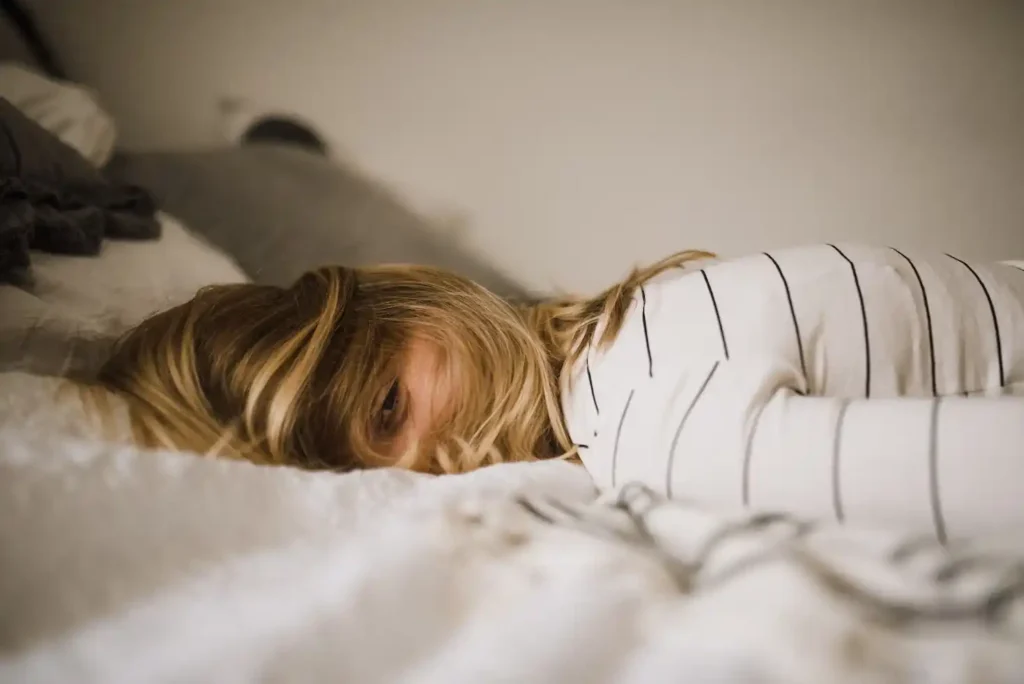Sleep is fundamental to a healthy life, yet many people struggle with insomnia or other sleep disorders. Insomnia, marked by difficulty falling or staying asleep, can lead to fatigue, lack of focus, and mood disturbances. Many others face disrupted sleep cycles due to conditions like shift work disorder or jet lag. These disruptions can negatively impact energy levels, mental clarity, and overall well-being. Here’s how natural light exposure can help regulate sleep patterns and improve sleep quality:
What Effects Sleep?
Knowing what impacts your sleep cycle and quality is fundamental to understanding how to help improve it, even when dealing with disorders like insomnia. Healthy sleep involves completing several full sleep cycles, each with distinct stages including light sleep, deep sleep, and rapid eye movement (REM) sleep. Each stage plays a unique role in physical restoration, memory consolidation, and emotional health. Your body and brain need an uninterrupted and balanced progression through these stages for optimal sleep.
Circadian Rhythm
The circadian rhythm is your body’s internal clock. It operates on a roughly 24-hour cycle and signals when you should feel alert or drowsy. This rhythm is primarily influenced by light exposure, particularly sunlight, which helps align the body’s sleep-wake patterns with the day and night cycle. A properly aligned circadian rhythm supports restorative sleep and helps you wake feeling refreshed.
Melatonin
Melatonin is a hormone central to sleep regulation, produced by the pineal gland during the evening hours when light levels naturally decrease. Exposure to natural light in the morning can help suppress melatonin production during the day. This helps you stay alert and awake. Dimming artificial lights in the evening supports the release of melatonin, promoting sleep readiness.
How Does Light Affect Sleep?
Light exposure is pivotal in determining when you feel awake or tired. Here’s how it impacts your sleep cycle:
- Morning Sunlight and Awakeness: Exposure to sunlight in the morning is key to resetting your circadian rhythm. It signals your body that it’s time to be awake and lowers levels of melatonin, preparing you for a productive day.
- Blue Light and Evenings: Artificial blue light, emitted by devices like phones, tablets, and computers, mimics daylight and can trick your body into staying awake. Reducing blue light exposure in the evening is fundamental to helping your body prepare for rest.
- Light and Sleep Hormones: Bright light, particularly in the natural spectrum, can signal the brain to align sleep-wake cycles properly. This synchronization makes falling asleep easier at night and helps you wake up feeling refreshed.
How Can You Improve Your Sleep Environment?
Adjusting your light exposure and making small fixes in your environment can significantly improve your sleep quality. Some environmental changes that may help your sleep include:
- Increasing Morning Light Exposure: Start your day by stepping outside or sitting near a window. Even minutes of sunlight in the morning helps send a powerful signal to your brain to sync your internal clock.
- Reducing Evening Blue Light: Avoid screens before bedtime. Use dim, warm-toned lighting in your home to create a calming atmosphere. If screens are unavoidable, use blue light filters or wear blue light-blocking glasses.
- Optimizing Your Bedroom Lighting: Try switching to dim, amber-colored bulbs for your bedroom. Blackout curtains can eliminate nighttime light pollution, creating a dark environment conducive to sleep.
- Balancing Light Throughout the Day: Make sure your workspace is well-lit with natural or soft lighting. This will support alertness and reduce strain on your eyes while maintaining your circadian rhythm.
Learn More Ways to Manage Insomnia
Natural light is a powerful tool for enhancing your sleep cycle, but knowing how to incorporate it effectively is the key to success. Whether you’re dealing with insomnia or looking to improve your overall sleep quality, changes to your light exposure and environment can make a difference. Contact a sleep professional today for more tips on managing sleep issues and aligning your circadian rhythm.
- mylovelyfurryfriend discover expert tips on dog health
- Infectious Diseases Updates – Stay Informed, Stay Protected!
- Wegovy For Weight Loss – A Breakthrough in Managing Obesity!
- Emergency Medicine Forum – A Hub for Fast-Paced Knowledge, Support & Updates!
- Pediatrics Discussions – Insights, Challenges, and Expert Advice for Better Child Health!





Leave a Reply